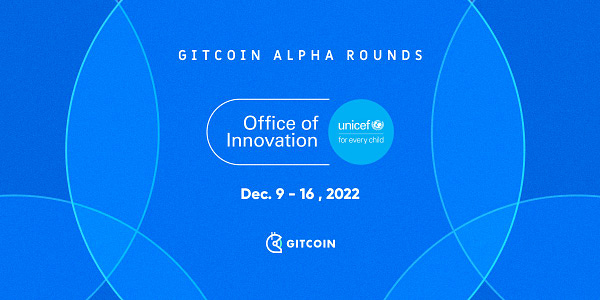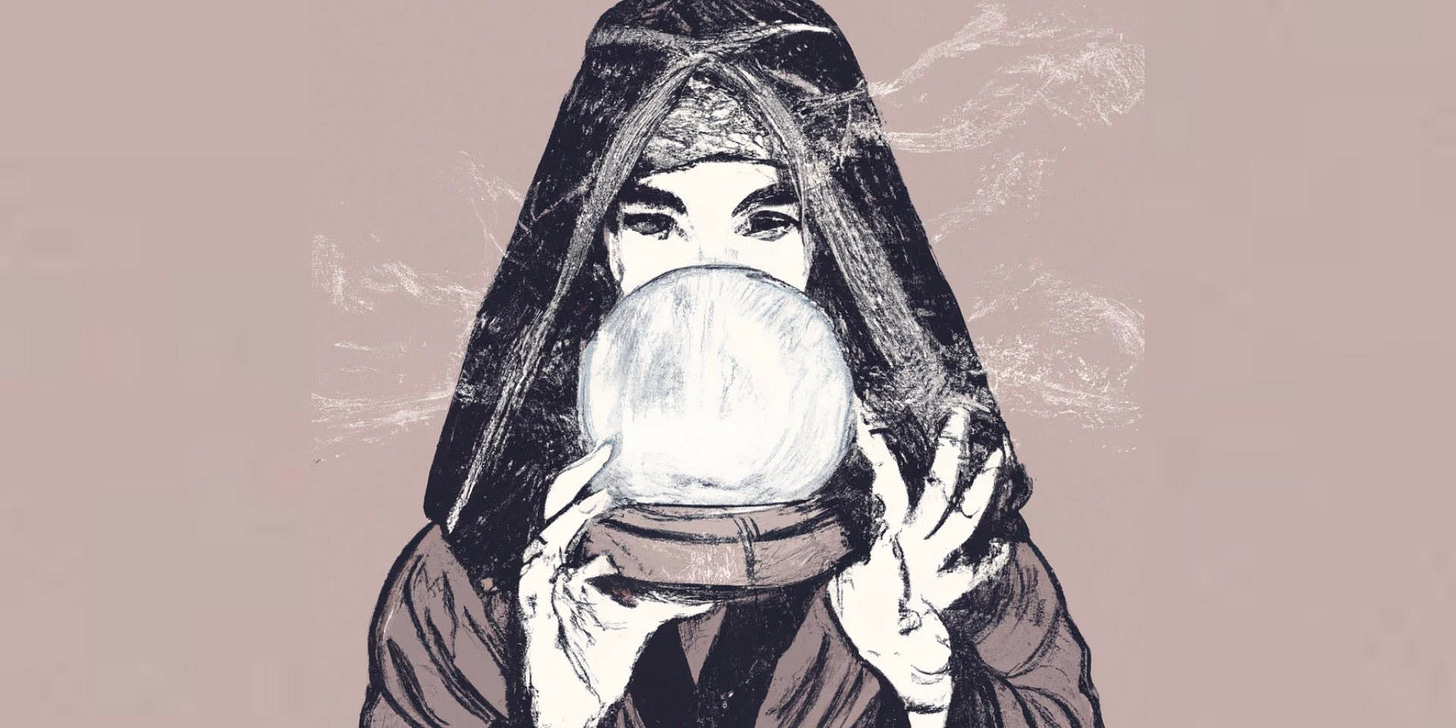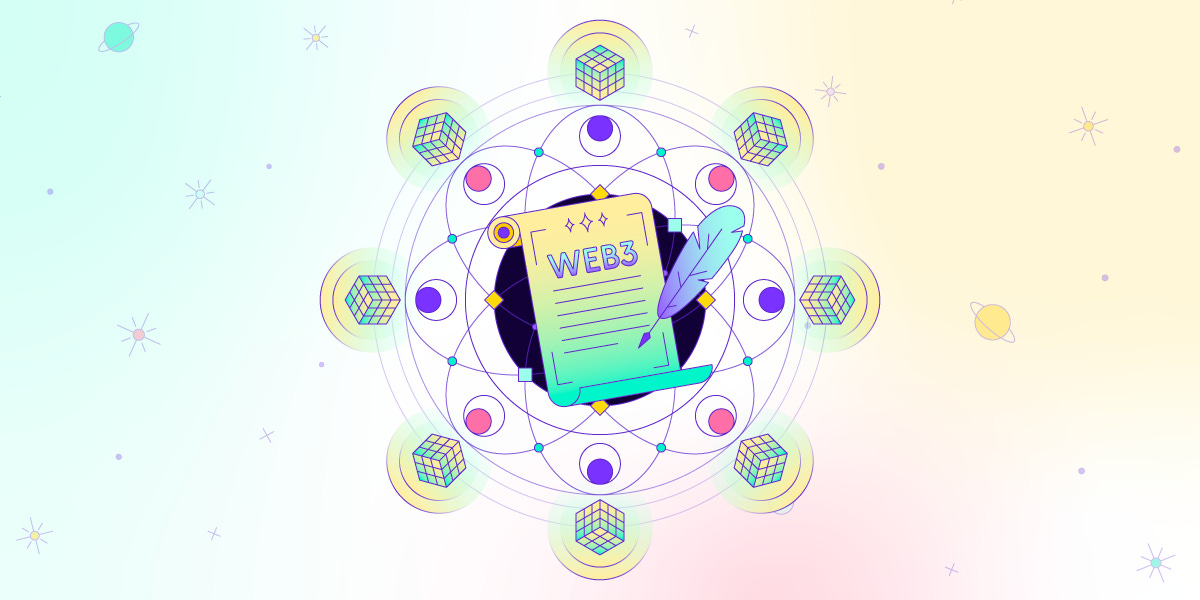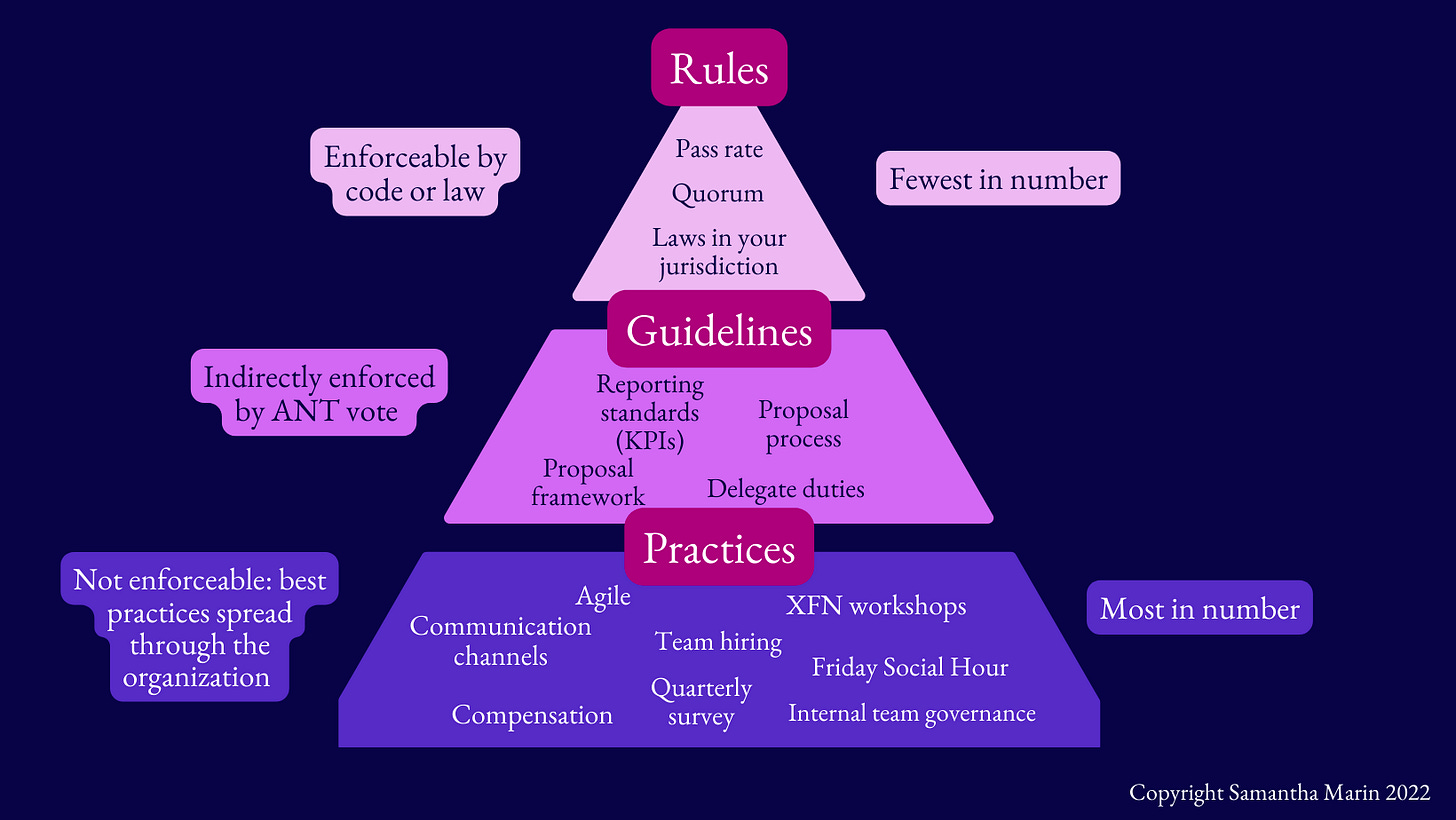UNICEF x Gitcoin Collaborate to Revolutionize Philanthropy
You're reading State of the DAOs, the high-signal low-noise newsletter for understanding DAOs.
Welcome to the State of the DAOs!
The last few months have been tough. The crypto news cycle has been dominated by bad actors, fraud, bankruptcy, and scams that seems to confirm everything we hate about this space. It’s easy to get caught up in uncertainty and doubt, and to lose sight of the reasons we are here and what we are trying to build.
Blockchain technology changes the way we coordinate to solve some of the biggest challenges the world faces. As we fight the FUD, now is the time to reorient ourselves and to search out the beacons of light that show us and remind us of where we are heading.
Nowhere in web3 does that light shine so brightly as at Gitcoin. Gitcoin has shown the world that by acting on web3 values, blockchain technology can be a force for good in the world. Through quadratic funding, they have changed the way public goods are funded on chain, and have repeatedly demonstrated the ability of their grants protocol to create meaningful social impact in the web3 space.
Now they are setting their sights even higher.
This week, we are highlighting a partnership between Gitcoin and UNICEF, a global leader in providing humanitarian and developmental aid to children. The partnership will feature ten projects chosen by UNICEF to demonstrate the power of community-led decision making for driving real-world impact.
This partnership could be the tremor that starts a cascade of events to revolutionize philanthropy as we know it, making it more transparent and accountable, while giving power back to communities that are the beneficiaries of the aid.
More than anything, this partnership reminds us of the promise of web3: that by working together with this new technology we can build our way towards the better world we know is possible.
We are not here because we hope it is true. We are here because we know it is possible.
Contributors: BanklessDAO Writers Guild (Azeem Khan, Scott Moore, angelspeaks, Boluwatife, Lanksss, HiroKennelly, siddhearta)
This is the official newsletter of BanklessDAO. To unsubscribe, edit your settings.
UNICEF x Gitcoin Collaborate to Revolutionize Philanthropy
Guest Writers: Azeem Khan & Scott Moore
Last week Gitcoin announced a grants round with UNICEF Innovate, a critically important step towards demonstrating to others the real-world impact of web3. Since its inception, Gitcoin has been funding a wide range of open-source public goods, distributing over $72 million in grants to builders internationally, many of whom have gone on to create some of the most impactful companies in the web3 ecosystem, including Plasma Group (now Optimism), Prysm, Uniswap, xDAI (now Gnosis Chain), and Yearn Finance.
The Power of Quadratic Funding
Gitcoin Grants uses the novel method of quadratic funding (QF) to allocate large pools of capital according to the preferences of any local community, which means that any group can decide on, fund, and bring to life what they care about democratically and pluralistically. Put simply, QF prioritizes the number of contributors rather than the amount donated, which means the more individual donors to a project or cause, the more matched funds it will receive.
QF is important because it runs counter to the way projects have historically been funded, where a small group determines what matters most, often from positions far removed from the communities they are looking to support. This disconnect ends up causing well-known and significant inefficiencies in how capital is used for real-world impact. Often money that’s been donated with the best of intentions ends up being squandered, leaving both sides unhappy. QF asks the question: what if money could be used more effectively, create more value, and create a positive flywheel effect that would help everyone in the process.
While historically Gitcoin’s work with QF has helped and will continue to help fund builders in web3, we believe these tools could have implications for funding public goods throughout the world. The UNICEF alpha round is our first experiment to test what this might look like, and we hope it lights a fire and helps to change the world.


Alpha Round Details
The UNICEF Innovate round took time to come to life. But as we got to really know the team, we were amazed by just how excited they were to try something new. Through their fund, which has invested in a wide range of web3 projects with no expectation of return, UNICEF Innovate has made huge strides in showing the world what web3 enables. As part of their work, they’ve even begun building frameworks and communities of practice to help identify new kinds of open-source, digital public goods.
For the alpha round, UNICEF chose 10 projects and contributed 50 ETH to a matching pool. The grants round is currently running from December 9 to December 21, and includes some great names: StaTwig, Somleng, XCapit, Kotani Pay, Pixframe Studios, Simple Map, Treejer Protocol, Bioverse Labs, Rahat, and AEDES.
Progressively Decentralizing Gitcoin Grants
This round is also the first one Gitcoin is running on our decentralized protocol. For the past 15 rounds of grants, our team has been doing everything through a relatively old school “web2.5” platform, which we finally retired to better align with our ideals of community-first, open-source protocols. Even beyond UNICEF, over the next few months we’ll be running a wide range of alpha rounds with selected partners before launching our publicly available beta for everyone to use in Q2 of 2023.
Gitcoin’s Grants Protocol still leverages quadratic funding, but will enable the community to define their own parameters, and even build their own modules to help experiment with new forms of collaborative fund allocation. We’re excited about the sheer number of new ideas the web3 community will come up with. If you have something in mind and want to be onboarded to run a round in the next few months, now’s the time to reach out!
Revolutionizing Real-World Impact
The revolutionary part of this grants round is that it marks the start of a major shift in how fund allocation works, putting every community in control over how they fund their own shared needs. And this doesn’t just apply to public goods; it applies to a wide range of problem spaces.
QF has the potential to make a huge impact on venture capital. Our track record at Gitcoin for helping pre-incubate some of the most well-known companies in web3 is very likely due to the collective intelligence of our core community. We didn’t invest in these companies ourselves, but the sheer quality of projects that came from these rounds was borne out by the returns made by other investors who did.
Another major area of QF potential is arts and culture. How often have you listened to an album, watched a film, or been to a performance where the most talented people get overlooked by the powers that be? What if it became the norm to start dedicating certain amounts of capital to the community, giving them the power to decide which artist would get access to funding without having to sign the rights over to their music?
The list goes on, from fashion, journalism, education, all the way up to government spending. Across almost any area, we can all think of a time where we feel like organizations have wasted money when they could have listened to the communities where those decisions mattered to better allocate the funds. That is the world we are building towards.
Gitcoin’s protocol is not quite ready for mass adoption. We need to get to the point where, like many web3 products, it’s easier and more straight forward to use. But slowly, we are navigating our way towards the world we know is possible, and the alpha rounds prove that we are well on our way. Changing the world isn’t something that happens overnight. While it might sound like a bit of hyperbole for us to say this round with UNICEF Innovate is a step towards changing the world, it’s not.
Let’s change the world together. Go donate!
Azeem Khan is the Fundraising & Partnerships Lead at Gitcoin. He has been working at the intersection of culture, entertainment, and blockchain since 2013.
Scott Moore is a Co-Founder of Gitcoin and an active steward of web3 public goods projects including ENS, Gnosis Safe, and Optimism.
Actions steps
💸 Donate to the UNICEF Alpha grants round.
⛏️ Dig into How Crypto Can Regenerate The World | Kevin Owocki
🎧 Listen Green Pill 63 - Is Crypto Good for the World? with David Hoffman & Juan Benet
Ecosystem Takes
🔥 and 🧊 insights from across the DAO ecosystem


UNICEF & Web3 Matching Grants
Author: Charles Cummings
🔑 Insights:
One of the biggest problems of philanthropy is top-down decision-making by people with little understanding of the struggles of individuals suffering in remote countries.
UNICEF is exploring the use of blockchain technology to connect people from all over the world in a transparent and verifiable way.
Gitcoin’s partnership with UNICEF is their first pilot of the new Gitcoin Grants software application.
The future of DAOs after FTX’s collapse
Author: StableNode
🔑 Insights:
The failure of FTX, one of the largest centralized crypto exchanges, proves that there is an urgent need for decentralization and DAO organizational structures.
The filing of the bankruptcy by FTX revealed many areas of misconduct, risky undertakings, mismanagement of funds, and serious fraudulent activities, carried out under the control of Sam Bankman-Fried.
DAOs operate transparently and minimize the risk of bad central actors, unlike FTX which was shrouded in lies and a lack of accountability.
DAOs remain strong and will continue to play a crucial role in the rehabilitation and growth of the crypto economy.
2023: The Year of Networked DAOs
Author: Avenue
🔑 Insights:
DAOs are entities that operate within walled off environments like Discord servers, where it is hard to see what projects are being worked on.
It is difficult for contributors to transfer reputation built inside of a DAO, undermining the potential advantages of working in a DAO.
Networked DAOs offer a solution to these problems, where contributors are able to see and choose projects to work on and build their reputation across the network.
DAOs can scale when they become networks, opening up access to a wider pool of ideas, innovation, and contribution.
Successful grants programs in web3 history
Author: Team Gitcoin
🔑 Insights: Web3 has developed a culture of providing grants to individuals and teams contributing positively to the ecosystem. Some examples of retroactive funding include:
Uniswap grants program provides reward for contributors dedicated to scaling the protocol. Its growing popularity led it to teaming up with Gitcoin to provide a workable system for its grants processes.
Aave grants DAO, a “sub DAO” under the larger Aave DAO, involves the community in its grants processes. This allows them to meet the initial challenge of evaluating a lot of grants quickly and accurately.
Eth Ecosystem Support Program provides broader support than just funding by providing visibility, connections, and access to a great team.
Undesigning a DAO
Author: Samantha Marin
🔑 Insights:
DAOs are meant to be innovative and exciting but when designing them, it's hard to choose between adding more rules or doing the exact opposite. Adding rules and procedures slows down administrative processes, while have no rules can lead to utter chaos.
Finding a middle ground may seem like the answer to some, but in reality, DAOs should be set free from the constraints of conventional organizations. To do this, tokens must be placed at the center.
By placing the token at the center, it is possible to integrate enforceable rules in the smart contract while disseminating guidelines and practices across the organization. In the end, automation should take center stage, with humans acting as its periphery.
DAO Spotlight: Optimism Collective
Author: Lanksss
Optimism, the Ethereum layer 2 scaling solution, launched its DAO in April 2022 and called it the Optimism Collective. The Collective is on a mission to align web3 technology with the values of its users. It is a group of communities, companies, and citizens whose vision is to reward positive impact on the collective by providing retroactive incentives for public goods which benefit Optimism, Ethereum, and the Collective as a whole. Optimism seeks to dispel the belief that building public goods can’t be profitable.
Optimism is set to provide support and maintenance for public goods by consistently providing retroactive funding for public goods. The funding is retroactive because it is relatively easy to agree on what is useful after it is built, and to verify who built it. The collective wants to create and grow an ecosystem where it is easier to build upon. In its first round of funding public goods, Optimism allocated a total of $1 million to fifty-eight highly valuable developer tools.
Optimism’s Retroactive Public Goods Funding rounds are expected to occur on a quarterly basis and they will be funded by three different revenue sources: 20% of the total token supply, the Optimism network transaction fees, and sequencer revenue.
Optimism is governed collectively by the Optimism Foundation and the members of the Optimism Collective. The Foundation is dedicated to growing the Collective and bootstrapping the ecosystem before eventually dissolving, upon which the responsibilities of the DAO will transition from the Optimism Foundation to the greater Optimism ecosystem.
The Optimism Collective is governed equally by two houses: the Token House and the Citizens House. The Token House consists of governance token holders which oversee project incentives, protocol upgrades, and treasury funds. The Citizens House facilitates and governs the process to distribute retroactive public goods funding. The Citizens’ House will be comprised of the top contributors in the Optimism ecosystem and citizenship will be conferred by permanent Soul-bound NFTs. Its governance decisions are not made by governance token holders alone. This bicameral governance system seeks to avoid governance pitfalls experienced by other governance models on Ethereum today.
The Optimism governance model is still an experiment in digital governance, its governance model will go through a series of iterations until it is fully mature.
The Optimism Collective has continued to lead the way by exploring new ways to scale the Ethereum ecosystem. If building a sustainable future for the Ethereum ecosystem interests you, visit their website, hop in to their Discord, and check them out on Twitter.
Get Plugged In
🧳 Job Opportunities
Get a job in crypto! Do you like solving hard problems, care about building more efficient markets for everybody, and want to work at the frontier of decentralized finance? Rook is looking for full time contributors ranging from engineering, recruiting, product marketing, copywriting, and design. Sound interesting?
👉 Sign up for our referral program and go full-time DAO.
Blockchain Economist
DeFI Bot Wrangler
Head of Research









Love it!